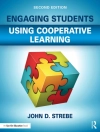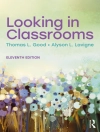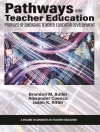Easy to implement strategies teachers can use right now
While opinions differ on how to define students who are ’at risk.’ most teachers agree that they are seeing more children hit roadblocks due to limited academic experiences, challenging environments, ADHD, or behavioral problems. Teachers often feel underprepared to connect with these students and improve their learning experiences.
In their latest work, Melissa Stormont and Cathy Newman Thomas draw upon their field experiences within special education and psychology to offer K–5 teachers practical tools for building relationships with these children. Readers will discover simple strategies for developing students’ academic aptitude and social behavior as well as how to
- Identify who is at risk for failure and why
- Build positive teacher-student relationships and establish supportive groups among children
- Use data-based decision making
- Provide students with increased time to practice with feedback
- Incorporate technology supports
- Know when and how to involve professionals and families
Moving well beyond mere theory, teachers who are working amid reforms and sweeping cuts can implement these strategies immediately and make a real difference in children′s lives. Get started today!
’This is a great book with which to start because it covers the basics—the foundation that needs to be in place before the academics can take hold for a student at risk. The ideas are easy to follow and could be implemented with little or, in some cases, no additional prep—that’s a bonus for an already busy teacher.’
—Barbara L. Townsend, Reading Specialist
West Side Elementary School, Elkhorn, WI
Innehållsförteckning
Dedication
Acknowledgements
Introduction
About the Authors
Chapter 1. Who is at Risk?
Chapter 2. Strategies for Building Relationships
Chapter 3. Using Data-Based Decision Making
Chapter 4. Increase Time to Practice with Feedback
Chapter 5. Teach and Support Desired Social Behavior
Chapter 6. Use Simple Supports for Improving Academic Success
Chapter 7. Use Technology
Chapter 8. Collaborate with Other Professional and Support Family Involvement
Om författaren
Dr. Melissa Stormont has been involved in special education and psychology for over 15 years. Dr. Stormont has worked to support children with behavioral problems as a teacher, behavioral consultant, and through teaching teachers and conducting research in higher education. Currently, Dr. Stormont is an Associate Professor in Special Education at the University of Missouri. Dr. Stormont has published extensive research related to the educational and social needs of young children who are vulnerable for failure including children with behavior problems, Attention Deficit Hyperactivity Disorder, and children who have limited resources due to poverty. Dr. Stormont’s research has included a focus on family and school factors that contribute to risk and resiliency. She has published over 30 articles and book chapters in these areas.












